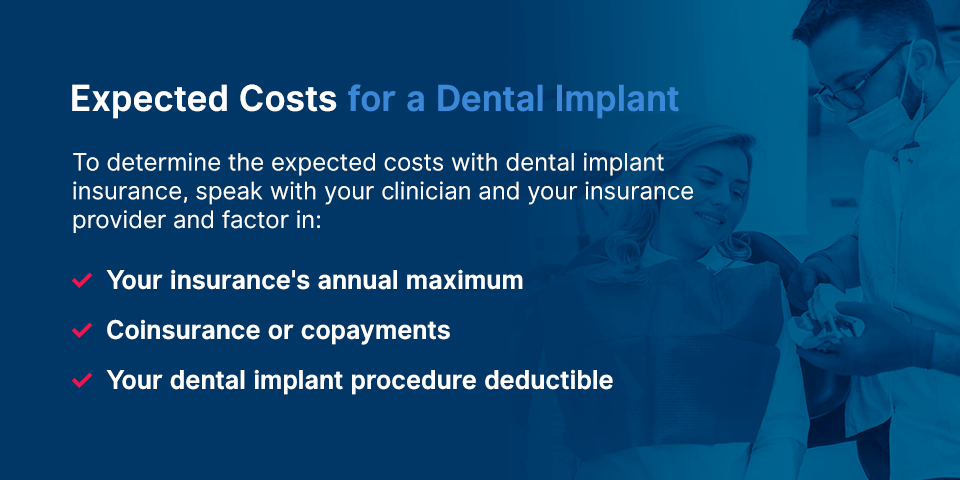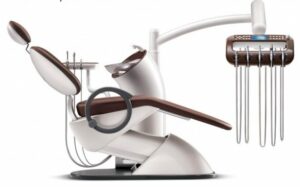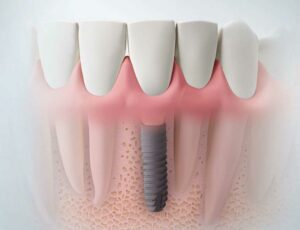Once you’ve looked into dental implants and decided if they’re right for you, consider your treatment options. For many, a deciding factor is if their insurance helps cover the dental implants. Everyone’s plans and treatment solutions differ, so you’ll need to learn about dental implants and insurance to help you make your decision.
For more information about dental implant financing options, you’ll need to examine your insurance coverage. We’ll cover what you need to know about dental implants and insurance in the below guide to help get you started.
Are Dental Implants Covered by Insurance?
Basic dental insurance policies don’t typically cover a dental implant procedure. You’ll need to look into cosmetic dental procedure coverage, which covers a portion of dental implants. Your dental implant insurance coverage could be 50% of the cost, meaning your insurance covers half of the procedure. Remember your deductible, or how much you pay for a service before the insurance covers it, could apply depending on your other dental needs that year.
Your medical insurance may also cover dental implant procedures, but that will vary based on your policy. If you don’t have dental insurance or coverage under your existing insurance, you can either seek a policy that covers dental implants or look into discount dental plan memberships.
When Are Dental Implants Covered by Insurance?
If you currently have dental and medical insurance, check your policies to see if they cover dental implants or cosmetic dental procedures. If your policy does cover implants, you’ll want to double-check for information about the following:
- Annual maximum: Insurance companies often use a calendar year to measure your annual maximum. That represents how much an insurance plan will pay for the dental care you or your family receives in a year. If you’re close to or at that annual maximum, you’ll be responsible for the entire cost of your treatment.
- Pre-existing conditions: You’ll need to check your insurance coverage for pre-existing conditions to determine your coverage availability. If you were already missing a tooth before the effective date of your insurance coverage, your insurance may not cover it. They’ll consider it a pre-existing condition because you had it before enrolling with them.
Expected Costs for a Dental Implant
You’ll likely have to pay something out of pocket for your dental implants. In general, a dental implant for one tooth could cost between $4,300 to $6,500. That will change based on your insurance coverage, your needs and other factors. To determine the expected costs with dental implant insurance, speak with your clinician and your insurance provider and factor in:
- Your insurance’s annual maximum
- Coinsurance or copayments
- Your dental implant procedure deductible
Along with those insurance factors, you’ll have to think about your specific treatment needs. Whether or not you have insurance, these factors also influence the expected costs of a dental implant procedure:
- How many dental implants you need
- The type of dental implants your clinician uses
- How many teeth need to be replaced
- The type of artificial teeth your clinician uses
- The need for procedures, such as an extraction, prior to your implants
- What, if any, alternatives your clinician suggests
- Your location and your clinician’s office location
Questions to Ask Your Insurance Company About Dental Implant Insurance Coverage
To find out more about your specific insurance coverage and policies, you’ll need to speak with your insurance provider. You can use the list of questions below to guide the conversation. You can also use these questions if you’re looking into dental insurance coverage, especially for dental implants.
1. What Dental Specialists Are in Your Insurance Network?
Looking into who is in your network helps you see where you can get a dental implant procedure. You’ll learn if you have any restrictions or limitations on who you can see for your treatment.
2. Are You Allowed to Choose Your Clinician?
You may find the answer to this question when asking about dental specialists in your insurance network. Some insurance policies do not allow enrollees to select their own clinician, while others do.
3. Is There a Least Expensive Alternative Treatment (LEAT) Clause?
A LEAT clause means your insurance only covers the least expensive treatment option. This would apply if you have more than one way to treat your dental condition.
4. What Is the Coverage Structure?
Certain insurance plans may cover 50% of dental implant costs, but that percentage varies for other procedures. Your insurance could also cover 100% of exams and 80% of tooth extractions. Those could be necessary steps for your dental implant procedure, so be sure you know every aspect of what’s covered.
5. What Aspects of a Dental Implant Procedure Does Your Insurance Cover?
Your insurance may only cover the artificial teeth your clinician uses or the implants themselves. Certain insurance policies may not cover those aspects and only cover an exam or extraction.
6. Can You Schedule Dental Appointments at Your Convenience?
See if you have any restrictions on when you can schedule dental implant appointments. You probably won’t want restrictions on when you can or can’t schedule an appointment.
Reimbursement Options
Healthcare reimbursement involves your insurance provider covering expenses after you’ve already paid them directly. You may also have reimbursement options through your employer with a health reimbursement arrangement (HRA).
With an HRA, you’ll have to receive a qualifying medical treatment and submit proof of that expense to your employer. Look into your HRA to see what reimbursement funds are available to you and if dental implant procedures qualify.
There are two ways to get reimbursement from your insurance provider:
- Work with your clinician to have them file the claim.
- Fill out and send the reimbursement claim yourself.
When you fill out a claim or reimbursement form yourself, you’ll need to provide a bit of information. This may include your insurance policy number, whether or not you have coinsurance or dual coverage and the reason for your visit.
You could also consider if dental indemnity plans are a potential solution for you. With a dental indemnity plan, you’ll receive a reimbursement after paying for your treatment, and certain plans cover implant procedures. You’ll have to look into the terms of these plans and see if you can choose your own clinician.
Learn More About Dental Implants With Hiossen® Implant
As one of the top five dental implant companies worldwide, Hiossen Implant provides safe and innovative implant solutions. Through extensive testing, research and expert input, Hiossen has created high-quality implants that both our clinicians and patients trust. With Hiossen Implant, you can reap the benefits from our commitment to shorter healing times and convenient aesthetic solutions.
Contact us today to learn more about our dental implants or find a Hiossen Implant location near you.





